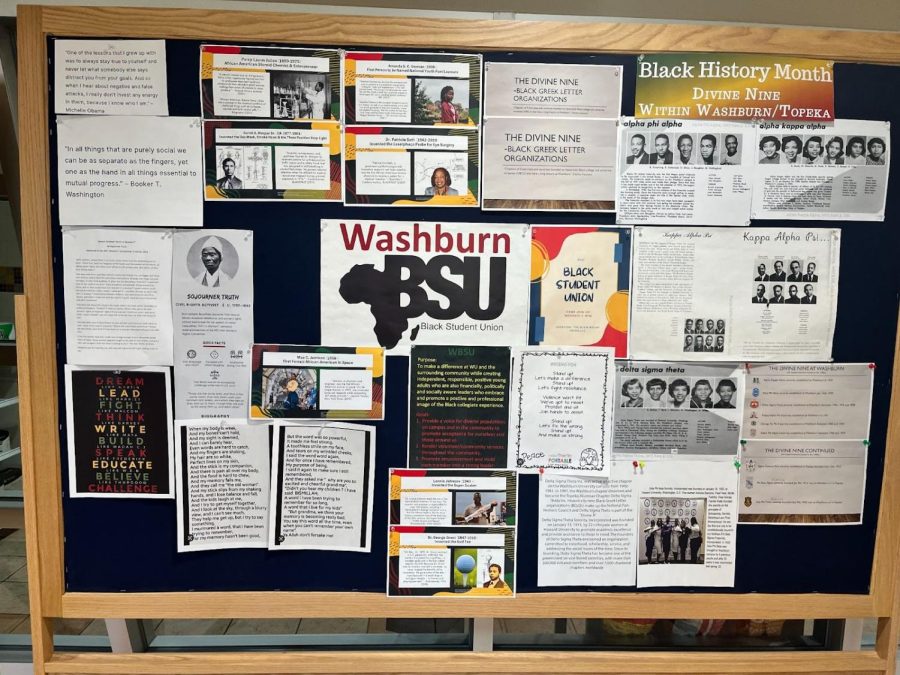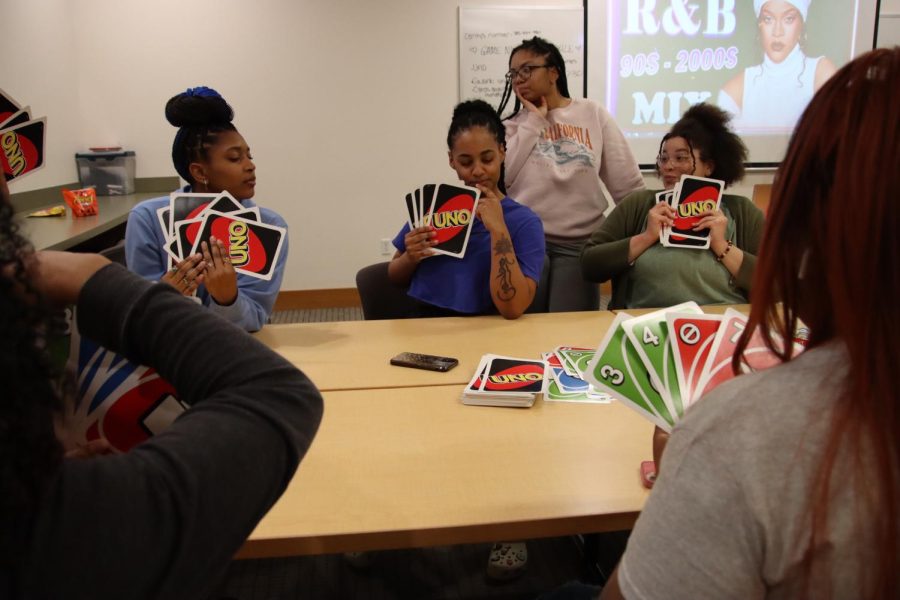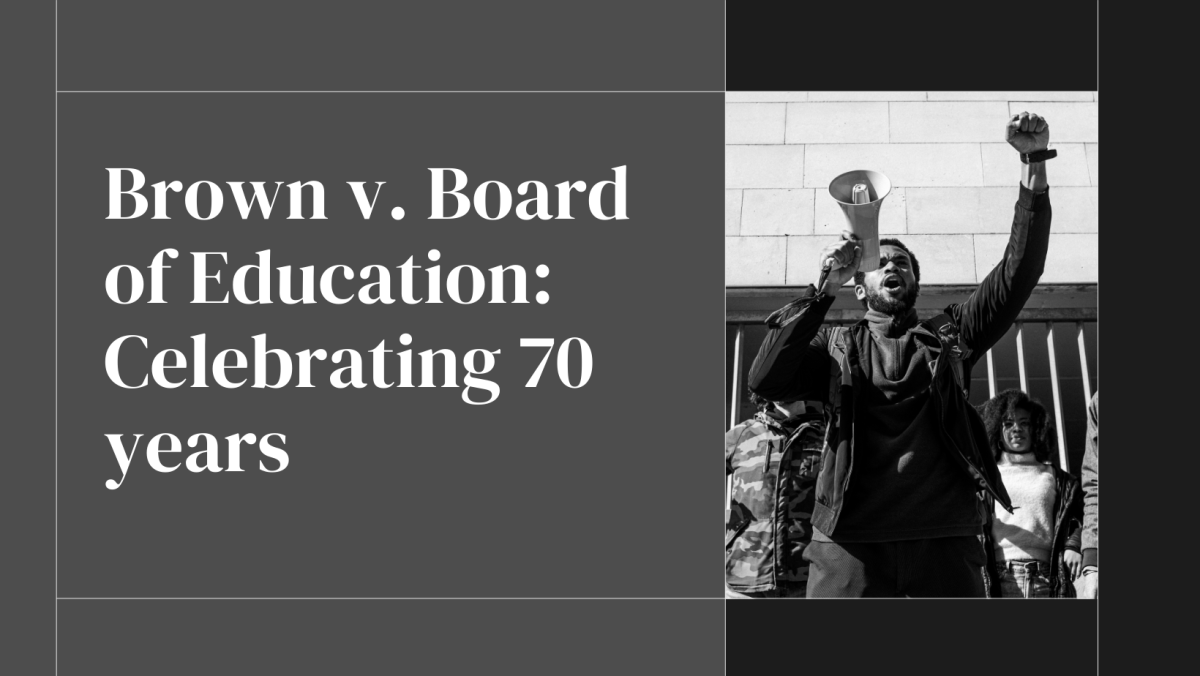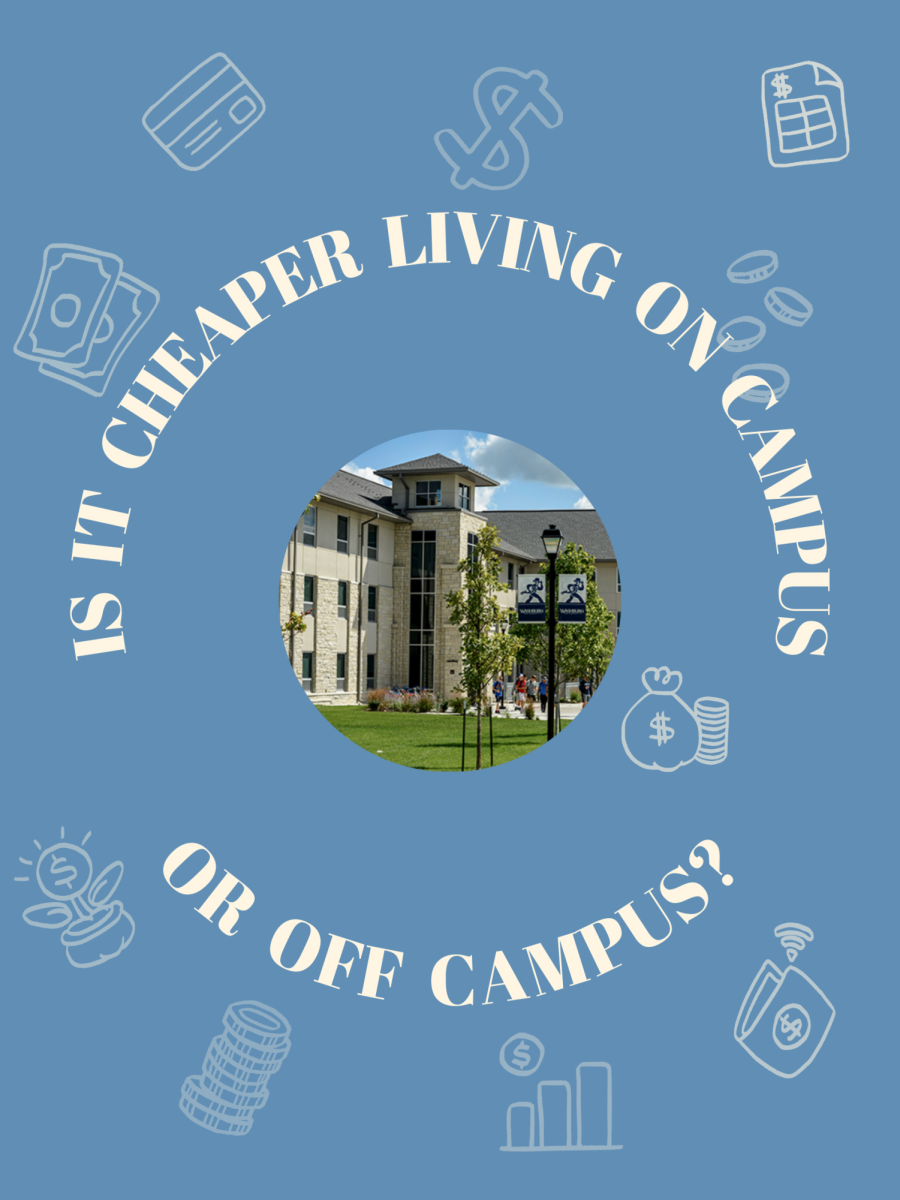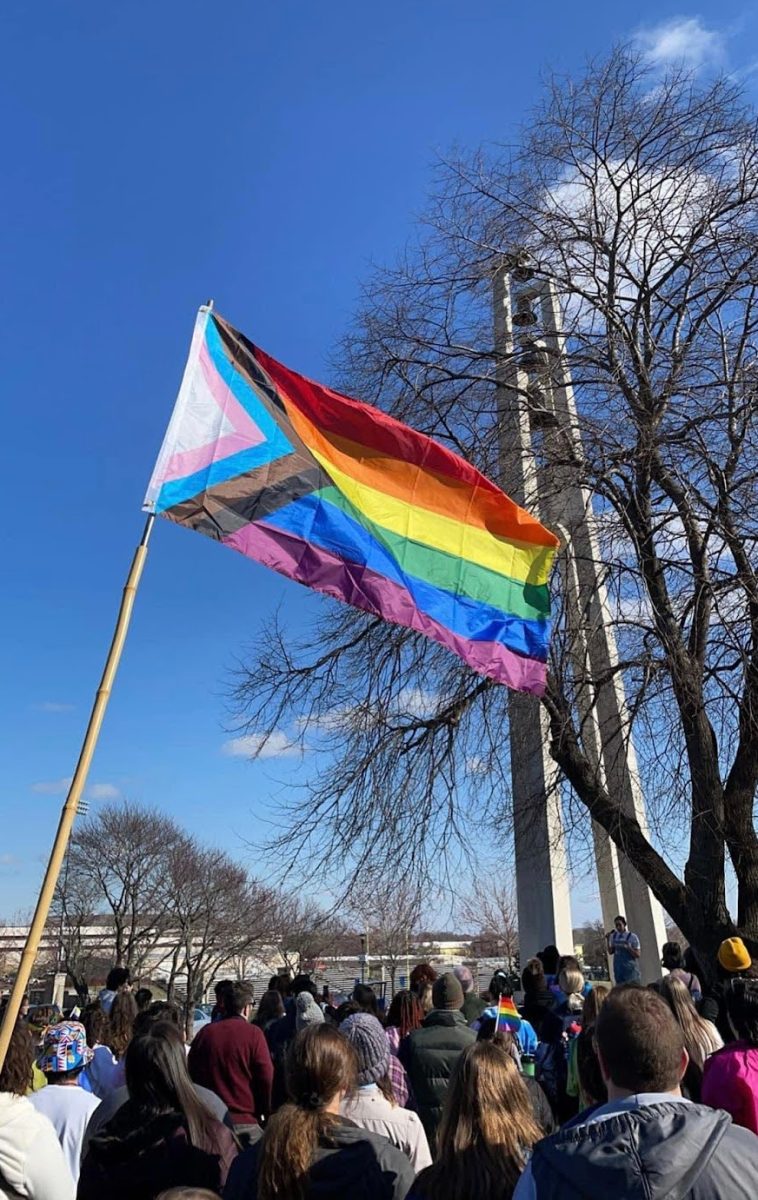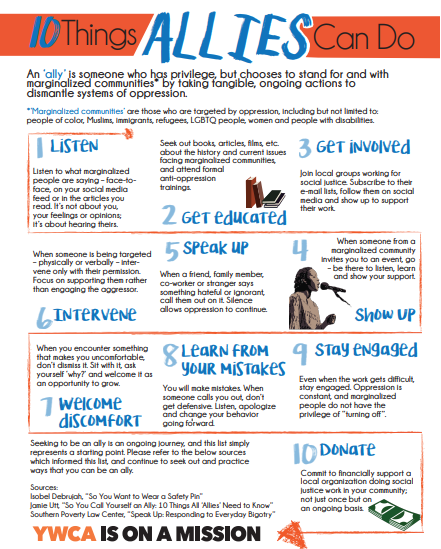
Washburn Student Media addresses the importance of sharing the stories and experiences of previous and current generations of Black Americans. The Washburn Black Student Union officers discuss the importance of allyship amongst Washburn students and ways the students can better demonstrate allyship to the Black community.
This year’s WUmester theme of community and belonging, a major focus for the Washburn community is the concept of allyship amongst students, faculty and staff.
Several controversial incidents have been brought to light involving racist comments and actions within the Washburn community. An incident from 2019 involving a Washburn student using a racial slur in a video prompted the creation of the hashtag #WUcandobetter, and several related incidents have happened since. Five years later, Washburn reflects on the past incidents of racism on campus and calls into question whether or not students on campus are considered allies to the Black community.
When analyzing the topic of allyship, the WBSU executive officers shared the different ways students can become educated and improve themselves to make campus safer and more inclusive for Black students.
Muffy Walter, co-advisor of WBSU, discussed this idea of allyship and how white students may not know the full extent of what being an “ally” is.
“What I know from doing a lot of research about racism and whiteness and how to strive to be – don’t like the word ally – An accomplice in the fight against racism is that I can only strive to be something,” Walter said. Just because one person thinks im an ally does not mean somebody else sees in the same way. It is about the impact versus intent so that’s why I’m a little weary when someone claims to be an ally to people, like, tell me what have you done that has made change or impacted people.”
WBSU is inclusive and open to any student at Washburn who embraces diversity, is a positive, innovative, open minded and dedicated Ichabod.
The organization regularly hosts all kinds of fun events throughout the year. There are workshops, poetry slams, guest speakers events and weekly meetings open to Washburn students who are eager to learn, make connections and become inspired.
“A way students can be better is learning our history, especially wanting to know our history,” said Samarii Berry, BSU Communications Officer, sophomore addiction counseling major.
On March 8, WUmester 2024 will host will feature world-renowned poet Nikki Giovanni. She dedicated her work speaking out about human rights issues to uplifting the Black experience and other black writers.
“White students can show up to WBSU events, white students can go hear Nicki Giovanni, a Black poet, talk. White students can show up to hear and talk going through generational trauma, and they should and this is college and it’s about learning,” Walter said.
Another important aspect of allyship WBSU discussed is becoming involved in campus events put on by Black Americans whether its students, faculty or a guest. Mia Terrel, sophomore criminal justice major, talks about how all WBSU events are inclusive and encouraged to the students.
“There are a lot of non people of color that want to learn about Black people or other cultures, but they only hang around people that they look like,” Terrel said. “They can come and learn a lot at BSU. Just coming for two hours, you can learn a lot in that one little bit of time and then you can start to form questions if you don’t have any. But to start off I think you should start putting yourself around those people so you can learn more.”
Desiree Caine, president of WBSU and Berry, mentions how advisors and guest speaker presentations are shared at meetings to better educate the students on subjects and issues involving race, but attendance has not been ideal.
“It turns into us just preaching to the choir, because we get it,” Caine said. Everyone is like ‘yeah I agree,’ but the purpose of the event is to educate people, but we can’t do that when people don’t come.”
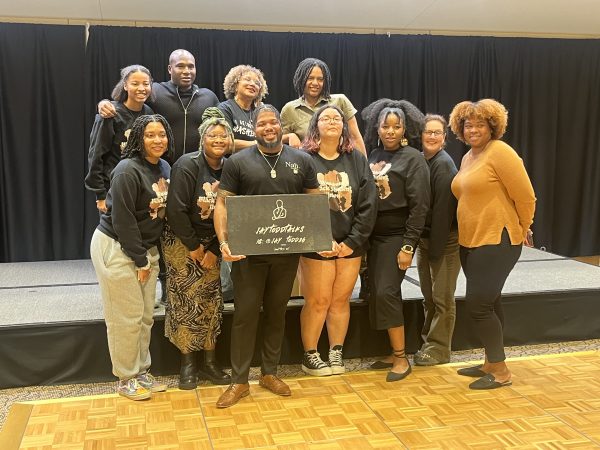
WBSU creates ways to educate students on campus. Students wondering how to get involved can start by attending Monday meetings hosted by WBSU in Washburn LLC in the Blair Room.
“Our advisor, Mrs. Canty, takes the initiative to have a five minute Black history lesson almost every meeting,” Berry said. “It feels good for all of us to have open discussion about some of the things we face, but most of the white students don’t really show up, so it kind of shows that we go through the same problems but no one else hears it but us.”
Another current issue happening on and off campus is how racism is being displayed on social media platforms.
“A couple years ago, before Yik Yak got banned, there was a protest we put on [and] multiple racist comments were put on Yik Yak [about it],” Petty said. “For one of our protests this year, there were more racist comments.When something very racist happens on campus, that’s when all of the racism comes out on Yik Yak [and]when all of the hidden racist people come out. Since no one knows who they are, they just don’t care.”
The members of WBSU wish for people to become proactive and be aware of racism on these platforms and the issues Black students face on campus.
“Please be more aware there are a lot more things that go on behind the scenes with the students,” Berry said. “We don’t have very many African American students on campus, but just appreciate the ones we do have and our staff.”
A key component of allyship WBSU talks about is letting the voices of Black students be heard and how white students often tend to overpower their voices.
“If students do decide to speak out, don’t over shadow the Black voices that are trying to speak out,” Petty said. A lot of times they will stick up for us if something happens, but then it starts to overshadow our voices also.”
The majority of the WBSU officers are involved in one or more campus organizations. Walter expressed how there is an immense societal pressure on Black women, especially those in leadership positions.
“What comes to my mind is WSBU having an all female officer cabinet,” Walter said. “It goes along with the notion Black women can work hard and can do it themselves and put it all on them to carry that burden, and that is very much a society belief that is unspoken.”
Berry agreed with this statement mentioning that Washburn students and faculty from different student organizations often take advantage of their leadership positions.
“Students who are in positions like us in a different setting really should stop trying to force jobs to be only our jobs,” Berry said. “Knowing full well that Black women, the way society is, is the reason they take on that burden and not ask for help, because they feel they can’t because we follow society as it is.”
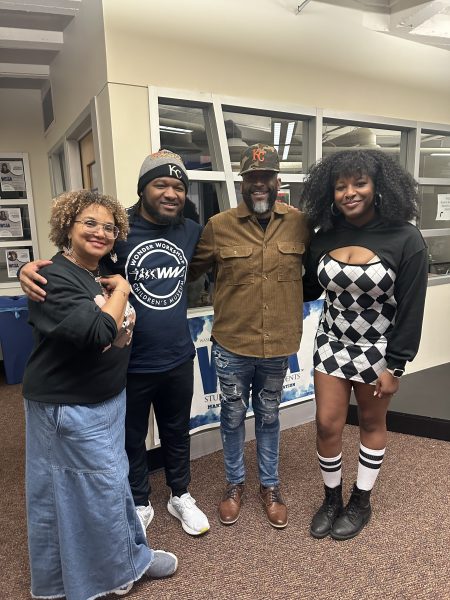
WBSU addresses the importance of Washburn becoming more educated on diversity and inclusion for staff, faculty and students beyond Black History Month. Even though the month of February is drawing to a close, this doesn’t mean the discussion is closed. The significance and impact of Black History can be celebrated all year long.
“African Americans don’t really get taught their history in depth, like the only thing you ever learn about is MLK and Rosa Parks and whatever else,” Berry said. “There’s no one else you would recognize like the first female astronaut or like who invented this. We have so many accomplishments. They wanna focus on the little glory and then it’s ‘whoops, the month is over.’
“But I hate that it’s only during the month of February that everyone thinks about us, we get coverage or posts about us,” Berry said.
The WBSU members, officers and advisors share the importance of reaching out to become more educated on these issues as all students, no matter race, gender or ethnicity, are always invited to participate, learn more and ask questions.
“If there are white students that want to know how to learn more about Black history and reliable sources, they can email me as a white professor and not burden Black students, faculty or staff,” Walter said. “I would be happy to direct them in the direction of resources.”
To learn more about WBSU and become involved, check out their page on Bods Connect WSBU Bods Connect or visit their organization’s website, WSBU.
Edited by Aja Carter and Jeremy Ford




